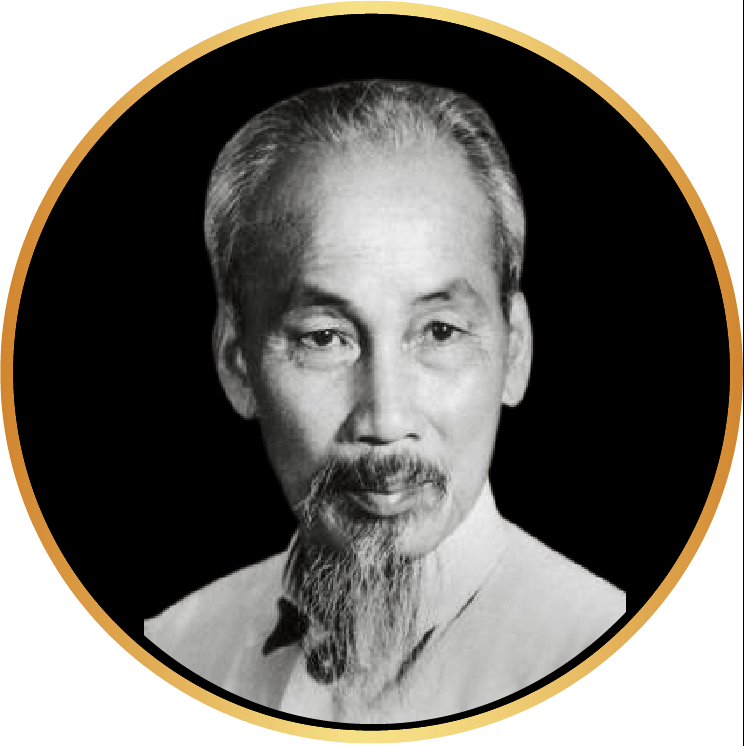
Ho Chi Minh
Hồ Chí Minh, commonly known as Bác Hồ ('Uncle Hồ') and by other aliases, was a Vietnamese revolutionary and statesman. He served as Prime Minister of Vietnam from 1945 to 1955 and as President from 1945 until his death in 1969. Ideologically a Marxist–Leninist, he served as Chairman and First Secretary of the Workers' Party of Vietnam.
Hồ Chí Minh was born in Nghệ An province in the French protectorate of Annam. He led the Việt Minh independence movement from 1941 onward. Initially, it was an umbrella group for all parties fighting for Vietnam's independence, but the Communist Party gained majority support after 1945. Hồ Chí Minh led the Communist-led Democratic Republic of Vietnam in 1945, defeating the French Union in 1954 at the Battle of Điện Biên Phủ, ending the First Indochina War, and resulting in the division of Vietnam, with the Communists in control of North Vietnam. He was a key figure in the People's Army of Vietnam and the Việt Cộng during the Vietnam War, which lasted from 1955 to 1975. Ho officially stepped down from power in 1965 due to health problems and died in 1969. North Vietnam was ultimately victorious against South Vietnam and its allies, and Vietnam was officially unified in 1976. Saigon, the former capital of South Vietnam, was renamed Ho Chi Minh City in his honor.
Aside from being a politician, Ho was also a writer, a poet, and a journalist. He wrote several books, articles and poems in Chinese, Vietnamese and French.

